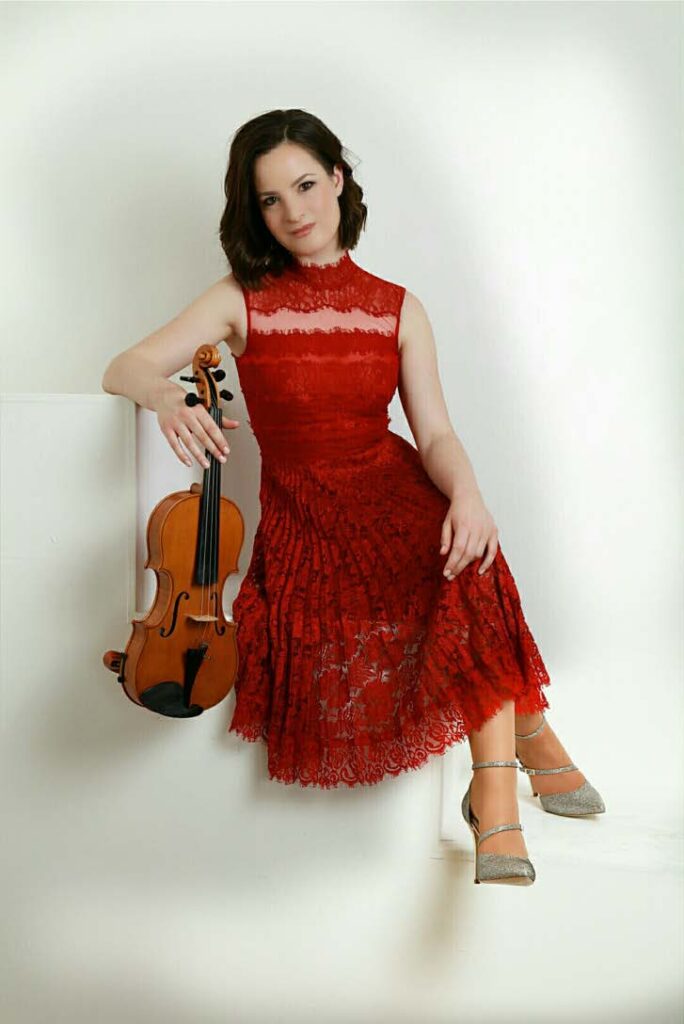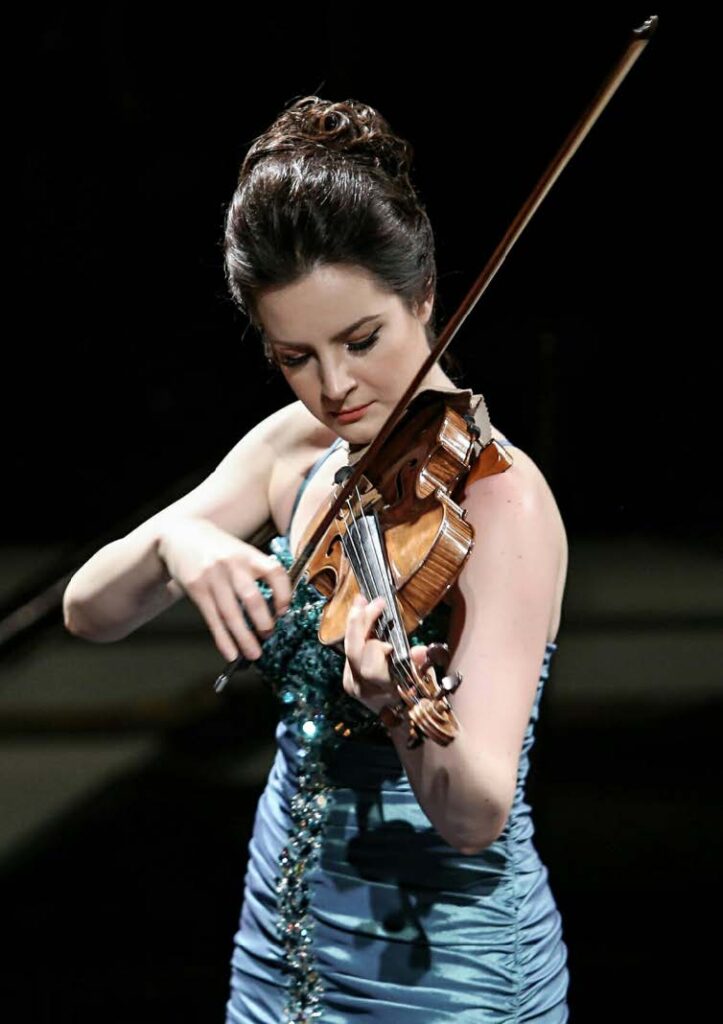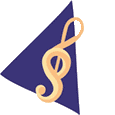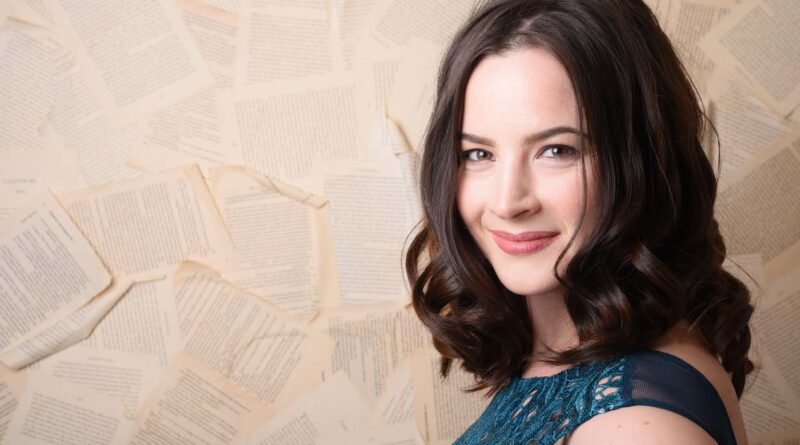Amalia Hall
Quality not quantity is key, says the NZ violinist, so we have time to experience all life has to offer.
Much has been made of Amalia Hall’s musical virtuosity, particularly given her start with violin aged 3 and learning to play by copying the advanced pieces being played by her older sister, Lara. But to Hall, her start was inevitable. ‘I was the youngest of four kids, so I wanted to play violin because I wanted to copy the others.’
And her ability to learn such advanced pieces? ‘Suzuki is so important for developing the ear. That helped me develop a quickness for adapting to different things. So, when I’m playing with different people I can pick up things quickly.’
Her parents thought music would be a good hobby, so Suzuki piano and violin lessons, group lessons, summer camp and so on were a big part of her childhood.
Given her enthusiasm for music, I wondered if she ever had to be pushed to practice?
‘There were probably a couple of times when I didn’t want to practice! I was very lucky in that my parents never pushed us. They always seemed to know just how to encourage and support us, without making us feel like it was a chore. Also, I was lucky with my teachers. I learnt Suzuki Piano with Hazel Roggan and each lesson was so much fun. It made me feel like I really wanted to play.
I think that enthusiasm is crucial for children because, in the end, as we develop as musicians we have to develop internal drive and motivation.
For any self-driven creative job or vocation, we have to find that fire burning inside ourselves.’
Perhaps what makes Hall so particularly interesting is that she discovered her fire, her vocation for violin, so early in life and that her trajectory from Suzuki violin lessons onward, through one major achievement after another, has been swift.
She was playing chamber music when she was eight, with her siblings in the Hall Family Quartet. At ten she became the youngest member ever of the NZSO National Youth Orchestra. She debuted with the Auckland Philharmonia at age nine, has been an associate member since she was 16 and became its Principal 1st Violin in her mid-twenties. In 2016, aged just 27, she was appointed Concertmaster to Orchestra Wellington, the youngest Concertmaster in New Zealand.
She has won so many awards the list would take pages! And in between her solo and chamber music performances, the international travel and engagements, she also teaches master classes.
This mix of solo performance, chamber music and teaching has always been her goal. ‘In the first week of going to high school, we were given a project to do an autobiography – all about ourselves, our passions and what we wanted to do in life. I said, “I want to be performing, I want to have an orchestral job, to be teaching and to be playing chamber music.” So even from the age of 13 and probably earlier, I knew that I wanted to do not just one thing in music, not just to be a musician or a teacher, but many different facets of being a violinist.’

And maintaining multiple roles is vital to her success. She has talked about home-schooling giving her room to pursue music without pressure, while leaving room for her to climb trees, read books and hang out with her siblings. All things that gave her experiences that then contributed to her playing.
This cross-pollination continues in her professional roles. ‘They feed each other. If people can spread their pursuits, those different pursuits help build up the other. My chamber music experience helps me when I play as a soloist with an orchestra. Being a soloist requires assertiveness and self-confidence, which helps when I teach. When I teach, I am constantly discovering new things about how I play. Those help me when I give recitals, as I am more aware of how I do things, so I can try to find the best way of doing something. Those different pursuits are all connected in a very close manner.’
Another reason to keep all those intertwined but different paths is that she couldn’t choose between them! ‘Sometimes I think I love chamber music the most because it’s so rewarding. Then I think the feeling I have after teaching, of being able to help someone to find a revelation and to progress, is the most rewarding. But then, to play solo Bach… that’s incredible! I do feel very lucky that I can have these different rewarding roles. It’s never boring and I keep learning.’
When she was 19, Hall began studying at the Curtis Institute of Music in Philadelphia. Standard practice at Curtis is for students to have two tutors concurrently; for Hall these were Pamela Frank and Joseph Silverstein.
‘Using my practice in a wise manner can be far more beneficial than doing hours. And then that means there’s more time for other things – to live and experience life, which helps us to be able to express more when we perform.’
‘Because the way we approach our instruments is such a physical thing – to use our fingers, our hands and arms to make music – we have to do the practice to make sure the physicality of it doesn’t get in the way of the music. But that searching for our individual interpretation also has to be intellectual. To understand the structure of the music, the composer’s life and approach to music, the basis of the era.’
Hall talks about playing music as problem-solving, whether in her own practice or when teaching.
Meeting the divergent demands and instructions of two different tutors taught Hall how to adapt to each tutor and to different situations.
It also began the process of developing her own voice. ‘That can take a long time. It needs trust in yourself and creativity in practice to find different ways to do things. Not to settle for things being OK, but to keep on trying to make things just how you want them to be. To keep searching inside and listening.’
This searching and listening is constant for Hall, including into the auditorium and her performances. ‘We have to be open to absorbing everything from the situation we’re in. There are so many variables in playing music. Even the instruments we use are not the same every day. It can depend on the weather, on how we feel, how our fingers feel – nothing is ever constant. Having flexibility and being more open to how we feel in that very moment brings a fresh approach every time.’
I’m curious whether she brings this emotional intensity into every practice.
Laughing, she tells me ‘Yes! Which is why I think it’s quality over quantity every time, when it comes to practice! My parents were very supportive of us just doing a small amount of practice. It wasn’t about doing a huge amount, just consistency. That’s key. That really helped us to keep things constant. I notice for myself now that a little bit can do a lot.’

She makes a practice of recording herself playing and then listening back to it. ‘Just the fact of knowing my phone is there recording means I play in a different way… It can be surprising when you listen to yourself – you think you’re playing in a particular way but it’s just not coming out. It’s crucial to have those objective ears. Where we’re playing close to our instruments it’s impossible to hear what it really sounds like out there.’
She sums up with words that are the recurring theme of our interview: ‘We have to make sure not to settle – something can be OK or even good, but we can make it fantastic. That’s what makes something convincing or our own voice. We’ve whittled it down to the pure essence of what it should be.’
So where will this curiosity and drive for the pure essence of music take her to next? ‘I’m not too sure to be honest! I’ve had some moments over the years when I didn’t know what I was going to do. But then, somehow, doors open and things happen. I like to go with the flow, but I’m aware that sometimes we do need to make big decisions and that we can create the life that we want. Maybe I’m at a point now when I need to decide what my next few years might bring, whether it’s teaching at a tertiary institution or reaching overseas to Australia or the States a bit more. The key thing for me is that I want to be sharing music – that’s my vocation.’
Her advice to current Suzuki students is to challenge themselves. ‘If you hear something isn’t working, ask yourself why it’s not working and what can I do to fix it? It’s as simple as that really. If we try one thing and it doesn’t work, then try something else – eventually you will find the way. It’s a matter of focus, of streamlining what we have to concentrate on.
It’s good to simplify things as much as possible by taking out as many extraneous things as you can – whittle it down to the basics. If I can’t make my sound come out over a certain string crossing or shift, if the articulation isn’t as crisp as I want it to be, I try focusing on different things. I focus on the angle of the bow or what my fingers are feeling or on the tilt of my arm. If there’s a passage that’s very difficult in the left hand, focusing on the right hand makes it easier for the left. If a passage has complicated bowing, do it with just a long slur or separate bows while the left hand gets used to it. If it’s a semi-quaver passage with lots of string crossings, then play it in double-stops. These are the variables that we can adjust in playing. Once we get used to experimenting and being creative, it becomes easier.’



